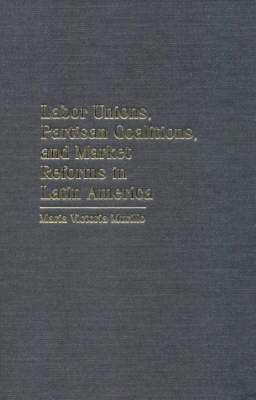Why do labor unions resist economic restructuring and adjustment policies in some countries and in some economic sectors while they submit in other cases? And why do some labor leaders fashion more creative and effective roles for labor unions? This book addresses these critical questions in an in-depth elegant comparative study of Argentina, Mexico, and Venezuela in the 1990s. In each case, the book studies both the role of national confederations as well as individual unions in specific economic sectors in each country. It demonstrates the importance of the presence and nature of alliances between political parties and labor unions as well as the significance of competition between labor unions for the representation of the same set of workers. This work opens new horizons for appreciating the intellectual and practical importance of the variation in the interactions between workers, unions, political parties, and economic policies.
- ISBN13 9780521780728
- Publish Date 7 May 2001 (first published 1 January 2001)
- Publish Status Active
- Publish Country GB
- Imprint Cambridge University Press
- Format Hardcover
- Pages 270
- Language English
